Manitoba elected a new provincial government on Oct. 3, with the New Democratic Party (NDP) taking the reins of power from the Progressive Conservatives (PC).
The NDP won a total of 34 seats, an increase of 16. The PCs came in second with 22 seats, a loss of 13, and the Manitoba Liberals were third, with just one seat, down from three.
The PCs had been in power since 2016.
The election results are “monumental,” said Chris Lorenc, president of the Manitoba Heavy Construction Association.
“Wab Kinew will become the first First Nations premier in Canada,” he said. “In addition, Heather Stefanson, the premier and the PC leader, resigned.
And the Liberals were reduced from three seats to just one and their leader resigned. The future of the provincial Liberals is very much in doubt.”
Lorenc had originally thought the election could go either way.
“But as the campaign approached election day, it became clear the NDP was going to win,” he said.
The reasons for the results are many, Lorenc said.
“The COVID-19 pandemic was handled less than well by the first PC administration (Premier Brian Pallister, 2016-2021),” he said.
Lorenc said Stefanson, who took over from Pallister at the end of 2021, made some significant and positive changes when she was in power, but they weren’t enough to break the connection in many voters’ minds with the unloved Pallister administration.
Kinew, on the other hand, is an excellent communicator and provides a very good public presence for the NDP.
“The NDP ran a smart, error-free campaign that focused on health care, something that every Manitoban, regardless of political affiliation, can relate to,” said Lorenc.
The NDP promised to reopen emergency rooms (ERs) at three Winnipeg hospitals that were shuttered by the PCs to save money.
It also wants to build a new ER at a hospital in the Interlake region north of Winnipeg, to improve health care in rural Manitoba.
“The campaign appealed to the good nature of Manitobans,” said Lorenc. The motto on the province’s license plates is Friendly Manitoba.
“The PCs, on the other hand, ran a campaign whose tone was angry and defensive.”
Judging from readers’ and viewers’ reactions in the province’s media, their message didn’t go over well at all.
“Wab Kinew made it clear during the campaign that it is ‘the economic horse that pulls society’s cart’ and that the government’s priorities would reflect that,” said Lorenc.
The association wishes Wab Kinew well, Lorenc said.
“The speech he made on election night was excellent,” he said. “He could become another Gary Doer, a popular Manitoba premier who connected with the general public and who understood the need to be practical and pragmatic, with a centrist, non-ideological approach.”
Christopher Adams, adjunct professor of political studies at the University of Manitoba, said the groundwork for the NDP’s health care promises were laid by the PC government.
“It also has the benefit of a recently announced budget surplus, so it will have the money to spend on its promises, which include removing the provincial gas tax and freezing hydro rates,” said Adams.
It’s unclear what effect the election results will have on economic development in Manitoba.
“The PCs wanted to develop mining in northern Manitoba, but the north voted solidly NDP, and the government will be more receptive to any objections the residents have,” said Adams. “The PCs were also in favour of more suburban development in Winnipeg, but the suburbs went NDP this time, so we’ll have to wait and see.”
At the same time, Adams said, the NDP won’t be hostile to economic development.
“Wab Kinew will be like former premier Gary Doer in that regard,” he said.
Bram Strain, president and CEO of the Business Council of Manitoba, said
the new government needs to promote a program of tax cuts, clean energy and mining development, building trade infrastructure and community wellness.
“If it can show a record of slow, steady progress for all Manitobans, it will be re-elected,” said Strain.
Darryl Harrison, Winnipeg Construction Association’s director of stakeholder engagement, said the results of the election weren’t surprising. “The NDP committed to issues we raised before the election, such as attracting more people into apprenticeship programs and making Manitoba more attractive for investment,” Harrison said.
Although affordability and health care are on many voters’ minds, if the new government wants to be re-elected in four years, Harrison said, it will need to balance the needs of Manitobans with a manageable tax burden.


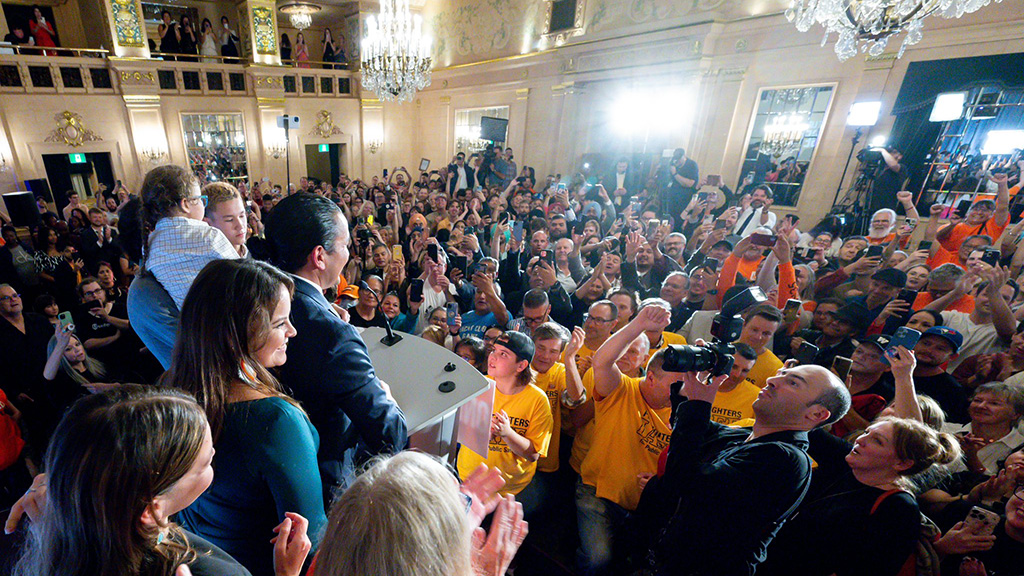


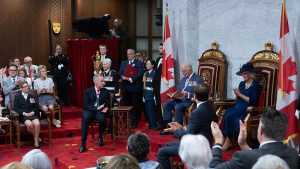
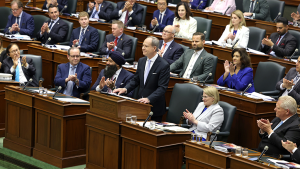

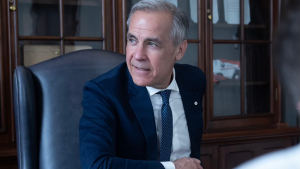
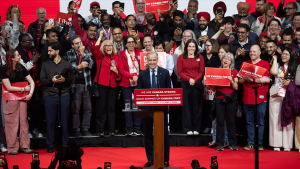

Recent Comments